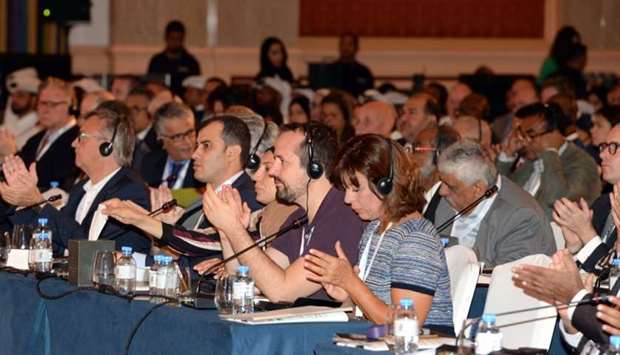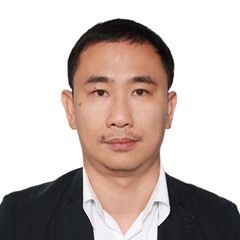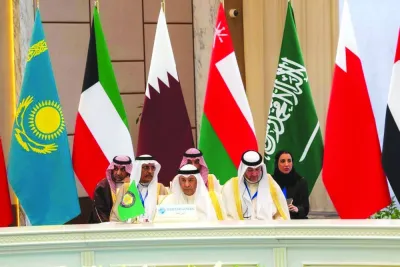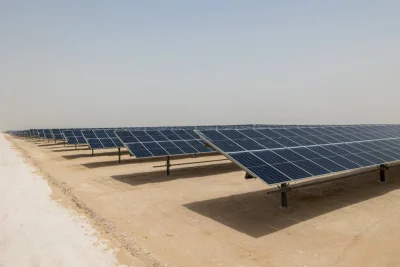“Even the four siege countries (Saudi Arabia, the UAE, Bahrain and Egypt) that demand the closure of Al Jazeera have such laws, but (these) are not put into effect,” Al Jazeera acting director-general Mostefa Souag said.
He was speaking at a panel discussion during the 'Freedom of Expression: Facing up to the Threat' international conference in Doha.
Souag noted that the one of the problems lies with politicians who suppress the media when at fault, citing the case of Egypt, which he described as “a clear example” of a country with a media freedom law that is not implemented.
A “politicised judicial system” also gives a state a hand to violate its media laws, leaving journalists unprotected from various forms of abuse and harassment, according to Souag.
“Judicial authorities have been politicised and such a judicial system is not independent,” he stressed.
“If we want to have ‘a real law’ that could be fair to journalists, first of all we should have a judicial system independent of the political system.”
Since 1996, Souag recounted that Al Jazeera and its journalists have been facing similar challenges in reporting the truth, particularly in a number of countries in the Arab world.
He added that they often get rejected from applying for licences to operate in these countries while some don’t allow members of the media to move freely or independently.
In some cases, the police chase reporters who interview people on the streets.
Souag said journalists suffer from different forms of harassment and are always at risk of being jailed, tried or even killed while doing their job.
“Some journalists are ready to die and their families are also at risk of being arrested and tortured,” he added.
“Opposition leaders, even when outside their country, as well as their families are subjected to being chased. These are the various tools used, and the final tool is killing.”
Souag also highlighted the need to protect journalists from threats and attacks, whether covering conflicts or reporting sensitive cases.
“At Al Jazeera, for example, we emphasise that their life is more important than the story or the news,” he said.
“We train journalists extensively and we bring in international coaches because you cannot send a journalist there who doesn’t have enough experience to (cover) such dangerous places, this is very important.”

A section of the gathering at the conference in Doha. PICTURE: Thajudheen
Many countries, including those in the Arab world, have laws on media freedom and journalists’ rights but these are not implemented, a senior official of Al Jazeera Media Network has said.



